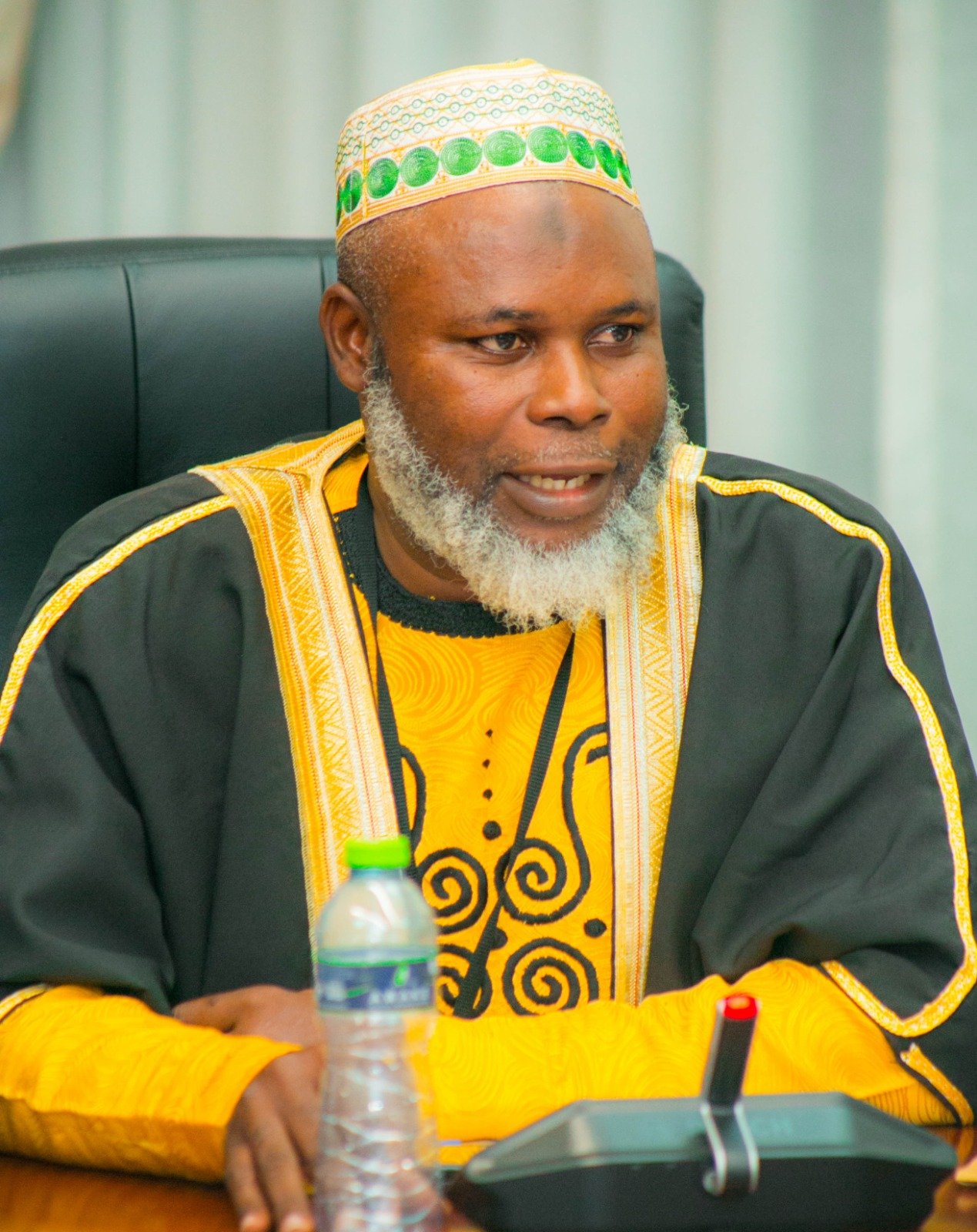Fruitful Living
The fruit of peace

“But the fruit of the Spirit is peace” – Galatians 5:22 (NIV)
INTRODUCTION
“Peace” is defined as undisturbed state of mind, the absence of mental conflict, the acceptance of one’s state, or the absence of anxiety. Synonyms of peace include such words as harmony, concord, contentment, agreement, calm, tranquility, serenity and quiet.
To be at peace with someone – whether a neighbour, a family member or God is to be in a harmonious relationship with them. At the heart of peace is harmony. When we ask Christ to cleanse us of our sins and make us new creations, we are asking for peace, a harmonious relationship with our Creator. In Matthew 5:9Jesus said “Blessed are the peacemakers, for they will be called sons of God”. This is a great promise, and it raises the question of what Jesus means about working to bring peace. Jesus calls us to bear the Fruit of the Spirit, and one of its essential components is PEACE, without which we cannot enjoy anything at all.
1. PEACE A TRUCE WITH GOD TO END MY ALIENATION FROM HIM
The God of peace will soon crush Satan under your feet. The grace of our Lord Jesus be with you – Romans 16:20.
God’s grace affords those who long to serve Him the power to triumph in the realm of spiritual struggle. Once Satan is defeated, our turmoil is gone, and we can fulfil God’s plans for our lives. Nothing is more beautiful than to exalt God and achieve in Christ an inner serenity free of all turbulence. The God of peace will crush Satan under His feet. Our old enemy is crushed and we are free to live and serve God in peace. What a great promise this!
When God acts to save us, His peace seeks us out in our world of stress and confusion. We realise that there is a better way to live, a way of life that spreads peace and resolves contentions. Our conversion brings us to a new level of peace, and we then share God’s peace with others through our changed lives.
2. PEACE AND MY RELATIONSHIP WITH CHRIST
“Let the peace of Christ rule in your hearts, since as members of one body you were called to peace. And be thankful” – Colossians 3:15
The glorious thing about peace is that it constitutes the soul of our relationship with Christ. We relate to Christ, we converse with Christ, we experience and grow in Christ only when His peace is the very atmosphere that shelters our ongoing relationship with Him. The word rule in Colossians 3:15 means to “umpire” or “arbitrate” the struggles and disquietudes of our lives.
3. PEACE, ACCEPTING A HIGHER WILL
No believer can ever find peace by posing as a follower of God while remaining dedicated to his or her own will. When the will of God is accepted, real peace becomes possible. Until then our attempts to serve God while having our own way result only in inner turmoil and peacelessness.
Desiring to do the will of God is the way to peace. We can recognise peace when we see it, but our real problem is that we don’t want to do God’s will. We are possessed of an odd notion that God’s will is no fun and that, if we are forced to do it, we shall be utterly miserable. But peace is not to be spoon-fed into our lives like cereal, nor is it instantly derived from our discipline. Peace is revealed. Peace is ours when we have accepted a higher will. When Paul accepted the call of God, he began to minister in ways he might never have imagined. He was freed to bring peace to others out of his own peace. When we focus on the will of God in our lives, we find peace, and we find that we can spread that peace to others.
4. PEACE AND THE PRINCE OF PEACE
“So then, dear friends, since you are looking forward to this, make every effort to be found spotless, blameless and at peace with Him” – 2 Peter 3:14
Peter encourages us to make every effort to be blameless and to live at peace with Christ. We are to live so much in the centre of Christ’s peace that we exude that same peace, and it becomes for those around us a haven from their own turbulence. We are to create peace for others by living in it ourselves. Those who try to preach peace while embroiled in their unresolved anxieties cannot make Christ appear much of a solution in a jittery world.
There is joy in the hearts of those who promote peace. Our personal quiet time in the presence of the Saviour ought to be approached, enjoyed and concluded on a note of quiet and untroubled love. Yet sometimes we hurry into His presence terribly troubled, spout off our intercessory lists and then hurry off still troubled. Worrying in the presence of God is not prayer. Certainly worrying in His presence cannot promote real peace in the Christian’s life.
Christians who live in inner conflict do not attract converts. Our own private battles often keep us from even seeing those around us who are in need. Indeed, we must call these inner wars to peace before we can see either Christ or our world.
5. PEACE AND MY SERVICE TO OTHERS
The truth is that people who are at peace make excellent ministers. Peacemakers have no personal agenda. They have no desire to use other people to further their own goals. Peacemakers create an attitude, a mood, an atmosphere that makes other people unafraid. If there is any ministry that must bring joy to God, it has to be that of giving the terrified a little security. We who love Christ are to reveal the peace He offers to a world of frightened children.
6. PEACE AND THE COMPANIONSHIP OF CHRIST
We are to walk with Christ just as we received Him: “in the faith”. We cannot be saved without exercising faith. But faith not only begins our walk with Him; it is also the purpose of God for all our lives. Peace is derived from our faith by continual companionship with Christ.
7. PEACE, THE REIGN OF THE HOLY SPIRIT
“Power is on the way,” Jesus said. “This power will enable us to change the world. Get ready for the power. The Holy Spirit will settle on us like a sweet, warm rain, and our arid lives will be productive once again.”
Whenever we hear God glorified, Christ exalted the kingdom of God proclaimed, we may be sure that the Holy Spirit is at work. The Spirit is the seeker of unity. The only member of the Trinity to wear an adjective is the Spirit. The Spirit is interested in integrity truth and right doctrine. There is no point in trying to harmonise truth and error.
It is a good thing to desire to live up to the expectations of other believers. Others count on us. They believe in us. We see God’s expectations a little at a time, but we do not know what others expect of us. And in our good example to them, we will have gone a long way toward pleasing God. Place this longing to fulfill the positive expectations of others in the centre of our own life. The good things they expect of us can be accomplished. When we are living peacefully and as a good example before others, then we will find it easier to minister to others, for it is hard to serve when our own life is in turmoil. The way to a life of joyous service is to surrender the turmoil, embrace the peace of Christ and move confidently into the ministry to which God has called us.
Edward H. Bickersteth in his beautiful hymn, Peace, Perfect Peace, raises many of the perplexing questions that we grapple with in our troublesome world, and provides answers to them. They are worth thinking about.
- Peace, perfect peace, in this dark world of sin?
The blood of Jesus whispers peace within.
- Peace, perfect peace, by thronging duties pressed?
To do the will of Jesus, this is rest.
- Peace, perfect peace, with sorrows surging round?
On Jesus’ bosom naught but calm is found.
- Peace, perfect peace, with loved ones far away?
In Jesus’ keeping we are safe, and they.
- Peace, perfect peace, our future all unknown?
Jesus we know, and He is on the throne.
- Peace, perfect peace, death shadowing us and ours?
Jesus has vanquished death and all its powers.
Culled from: Fruit of the Spirit Bible.
Stay blessed!
For further inquiries please contact us on Tel Nos. 0302-772013 or 0268130615
Email: saltnlightministries@gmail.com
Website: saltandlightministriesgh.org
Fruitful Living
Institution of Marriage in Islam (Pt.3)

Regarding sexual intimacy, it is also prohibited for a wife to demand money or gifts before allowing her husband to engage in sexual relations. Islam views this as a form of exploitation and sin. A marital relationship must be based on mutual love, respect, and affection rather than material gain.
Prohibition of sexual intercourse during menstruation
Islam has clear guidelines regarding sexual relations during certain times, particularly when a woman is menstruating. The Qur’an prohibits sexual intercourse during menstruation, stating:
“And they ask you about menstruation. Say: ‘It is harm, so keep away from women during menstruation. And do not approach them until they are pure. And when they have purified themselves, then come to them from where Allah has ordained for you. Indeed, Allah loves those who are constantly repentant and loves those who purify themselves’” (Qur’an 2:222).
This verse emphasises the importance of refraining from sexual activity during menstruation due to physical and spiritual reasons. However, all other forms of affection and companionship are allowed, and husbands should continue to care for their wives during this time with love and respect.
Islamic law encourages cleanliness and personal hygiene, especially in matters related to physical intimacy. After the menstruation period ends, it is recommended that the wife perform ghusl (ritual purification) before resuming sexual relations with her husband.
Rights of Children on Parents
Islam emphasises the rights of children on their parents, as marriage is the foundation of family life. Parents are obligated to provide their children with proper care, education, and moral guidance. The Qur’an states: “O you who have believed, protect yourselves and your families from a Fire whose fuel is people and stones…” (Qur’an 66:6).
This highlights the parents’ responsibility to raise their children with a strong sense of morality and faith. Children have the right to a good name, religious upbringing, and education, and they must be treated with fairness and love.
In Ghana’s law, there is Children’s Right Act, Act 560 (1989) which states among other things,
• Section 4, Right to Name, Nationality and secure a Birth Certificate for the child
• Section 6(3) (a&b), protection from neglect, provide good guidance, care etc
• Section 8(1&2), Right to education and wellbeing (medical care, diet, clothing, shelter).
How Do Married Couples Resolve Their Differences in Islam?
Islam provides clear guidelines for resolving marital conflicts in a just and compassionate manner.
The Qur’an instructs that in the event of marital discord, both parties should seek reconciliation:
“If you fear dissension between the two, send an arbitrator from his people and an arbitrator from her people. If they both desire reconciliation, Allah will cause it between them” (Qur’an 4:35).
The goal is always to preserve the marriage and restore harmony. If reconciliation is not possible, Islam permits divorce as a last resort, but it is considered the most disliked permissible act in the eyes of Allah (SWT).
Rewards of Marriage in Islam
Marriage in Islam is not only a social institution but also an act of worship that brings great rewards. The Prophet Muhammad (PBUH) said: “When a man marries, he has fulfilled half of his religion, so let him fear Allah regarding the remaining half” (Bayhaqi, Shu’ab al-Iman).
Married couples are rewarded for fulfilling their marital responsibilities, showing kindness to each other, and raising righteous children who contribute positively to society.
Scholarly Thoughts About Marriage in Islam
Islamic scholars, such as Imam Al-Ghazali, have discussed marriage as a means of controlling desires and fulfilling one’s spiritual obligations. Modern scholars like Sheikh Yusuf Qaradawi also stress the importance of mutual respect and understanding in marriage, ensuring that both partners can grow spiritually and emotionally within the marriage.
Conclusion
In conclusion, marriage in Islam is a divinely ordained relationship based on mutual love, respect, and responsibility. By following the guidance of the Qur’an and Sunnah, and observing the legal frameworks in place, such as Ghana’s Mohammedan Ordinance, we can establish strong and harmonious marriages that contribute to the moral and spiritual development of society. May Allah (SWT) guide us to fulfill our marital responsibilities with sincerity and love.
The Writer is Kpone Katamanso Municipal Chief Imam, Democracy and Governance Law Student, UCC, Member of Ghana National Association of Certified Counsellors Certified by Ghana Psychology Council
References:
1.Qur’an, Surah Ar-Rum (30:21)
2.Qur’an, Surah An-Nisa (4:34, 4:4, 4:19, 4:35)
3.Qur’an, Surah Al-Baqarah (2:187, 2:221, 2:222, 2:223)
4.Qur’an, Surah At-Tahrim (66:6)
5.Ibn Majah, Hadith 1845, 1905
6.Tirmidhi, Hadith 1162, 1084
7.Bukhari, Hadith 5090
8.Children’s Right Act, Act 560 (1989)
9.Bayhaqi, Shu’ab al-Iman
10.Al-Ghazali, Ihya Ulum al-Din
11.Qaradawi, The Lawful and Prohibited in Islam
Fruitful Living
Adansi North DCE marks birthday on Farmers’ Day

It was a momentous day for the Adansi North District Chief Executive, Eric Kwaku Kusi, last Friday November 8, as the 40th National Farmers Day district level celebration held here at Adansi Adokwai coincidentally fell on his birthday.
On a low-key, Mr Kusi momentarily took to the floor, to exhibit his dancing skills responding to cheers of “Happy Birthday to you” from the audience, to which he also responded with a gesture of thanks and praises to God, as he stepped out to address the gathering.
He was joined on the dancing floor by the assembly members singing praises to God for the life of their indefatigable DCE.
In his address, Mr Kusi commended farmers in the Adansi North and the country as a whole “who tirelessly cultivate the land to feed all of us in our communities.”
He said the government realising the important role agriculture played in the economy and the challenges facing farmers due to the effects of climate change was rolling out initiatives and policies to support climate-resilient agriculture, including agriculture insurance programme for farmers.
In all 16 farmers were awarded various prizes for their contribution to food sufficiency in the country.
Francis Appiah, 41, who hails from Adokwai was adjudged the District Best Farmer for 2024, and took home a tricycle and other assorted items. The first runner-up prize went to Sakyi Kwabena also from Adokwai and the second runner-up went to Kwame Gyamera from Dompoase.
From Alhaji Salifu Abdul-Rahaman, Adansi Adokwai







